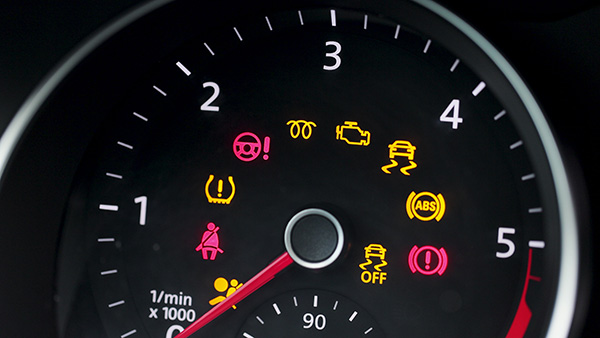
Little changes often show up before big problems. A faint squeak, a new vibration, or a light on the dash can be your first hint that something needs attention. If you catch these clues early, you can prevent roadside trouble and keep repair costs reasonable. Here are seven signs worth paying attention to, what they usually mean, and why quick action helps.
1. New Noises That Do Not Fade
A sound that appears and stays is speaking to you. A chirp on cold starts often points to a loose belt or a worn tensioner. A grinding noise during braking suggests pads that are down to the backing plates and rotors that are taking a beating. A rhythmic thump that follows road speed can be a flat spotted tire or a wheel bearing beginning to fail. Make a quick note of when the noise happens, such as over bumps or while turning, and which side you think it comes from. That detail shortens diagnosis time.
2. Vibration, Shimmy, or a Pull While Driving
A steering wheel shimmy between 55 and 70 miles per hour usually means a wheel balance issue. A constant growl that gets louder with speed can be a wheel bearing. If the car drifts to one side on a straight road, alignment may be off, or a tire could be low. Any pull under braking points to a sticking caliper or uneven pad deposits. Vibrations do not fix themselves. They wear tires quickly and stress suspension parts, so plan an inspection soon.
3. Warning Lights and What Their Behavior Means
A steady check engine light usually signals an emissions or sensor fault that affects fuel economy and drivability. A flashing check engine light means an active misfire that can damage the catalytic converter, so ease off the throttle and get it checked right away. ABS and stability control lights often trace to a wheel speed sensor or a broken tone ring. If multiple lights appear after a cold start, weak battery voltage may be the real cause. Stored codes and freeze frame data tell the story when read with a proper scan tool.
4. Smells That Point to Heat, Leaks, or Vapors
Your nose is a strong diagnostic tool. A sweet smell hints at coolant vapor from a hose, radiator, or heater core seep. A sharp, hot odor after parking often means oil is dripping on the exhaust from a valve cover or oil filter housing. A fuel smell near the rear quarter or under the hood can be a loose gas cap, a cracked EVAP hose, or an injector seal beginning to leak. If you smell fuel inside the cabin, roll the windows down and have the car inspected before driving far.
5. Spots on the Driveway or a Low Reservoir
Fluids tell you where to look. Reddish fluid may be transmission or power steering, depending on the model. Brown or amber is often engine oil. Green, orange, or pink can be a coolant depending on the chemistry used. A clear puddle under the passenger area can be normal A/C condensate on hot days, but slick, clear fluid may be brake fluid, which is not safe to ignore. Check levels only when the engine is cool and on level ground, and do not open a hot cooling system.
6. Shifts, Throttle Response, or Idle That Feels “Off”
Driveability changes show up early when filters, sensors, or software need attention. A delay when shifting from park into drive can indicate low transmission fluid or a pressure issue. Hesitation off the line may point to a dirty throttle body, a mass airflow sensor that needs cleaning, or ignition parts nearing the end of their service life. Rough idle with the A/C on can be a failing mount or a weak idle control strategy that needs an update. These are the kind of small changes that are easiest to fix before they grow.
7. Brake Feel That Is Different From Last Month
Pedal feel should be consistent. A soft pedal often means air or moisture in the hydraulic system or a rubber hose that is swelling under pressure. A pedal that pulses while stopping points to rotor thickness variation. If the car drifts during braking, a caliper may be sticking on one side. Any grinding sound under braking usually means the pads are gone and the rotors are being chewed up. Quick service here saves rotors and keeps stopping distances short.
Listen to the Signs with Loyola Marina Auto Care in Westchester, CA
If your car has started to speak up with new sounds, smells, lights, or changes in feel, bring it to Loyola Marina Auto Care in Westchester, CA. We will road test the vehicle, scan for stored data, and inspect the systems that match your symptoms. Then we will explain what we find in clear language and make a plan that fits your schedule and budget. Catching small issues now keeps you out of the breakdown lane later.
Schedule a visit today and drive with confidence.